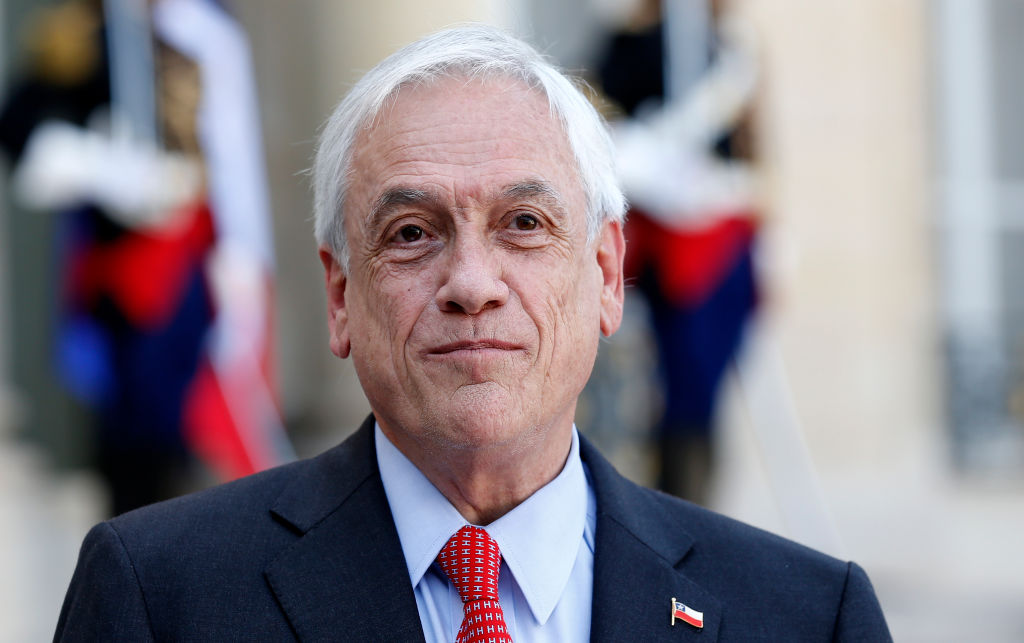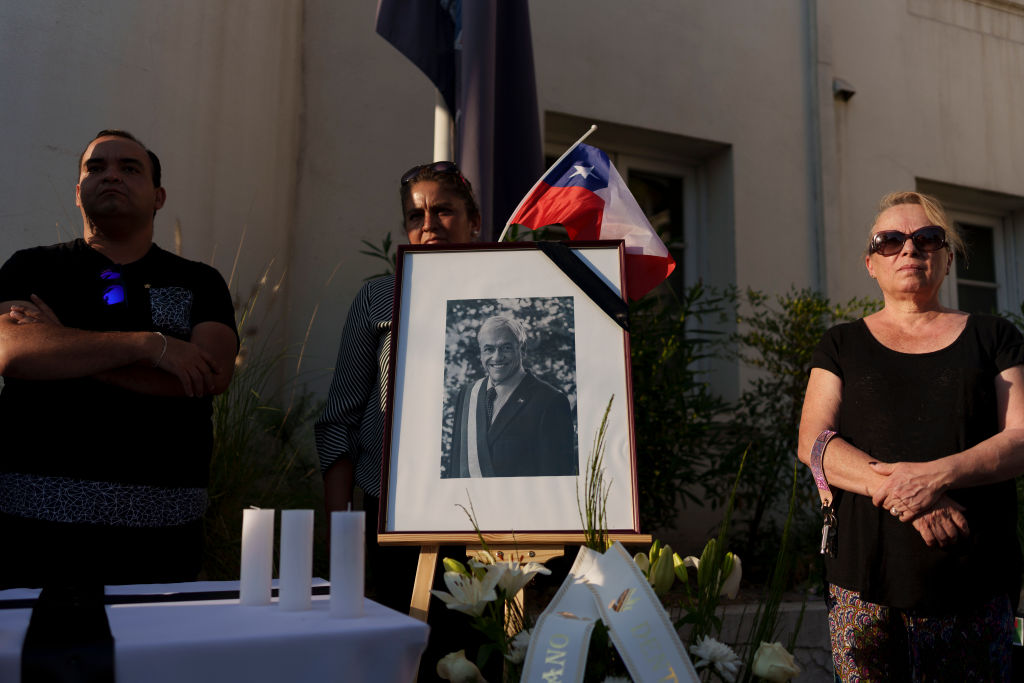
Sebastián Piñera, the billionaire who brought Chile’s political right wing out from the shadow of former dictator Augusto Pinochet to win two separate terms as president, died in a helicopter crash in the south of the country. He was 74.
The helicopter went down in a lake in the Region de Los Lagos, Interior Minister Carolina Toha told a press conference on Tuesday. Three people were injured and managed to swim to the shore, while Piñera was trapped in the wreckage. His body was later recovered by rescue services.
“So goes the most important and successful right-wing leader in the history of Chile,” Mauricio Morales, a professor of political science at Chile’s Universidad de Talca, wrote on X, the platform formerly known as Twitter. “His governments left more lights than shadows.”
Piñera became president in 2010 and again in 2018, overseeing two periods of growth, though the second was overshadowed by the worst social unrest in a generation that paralyzed much of the country.
One key to Piñera’s early political success was distancing his right-wing coalition from Pinochet’s 17-year dictatorship, which ended in 1990, enabling it to unseat the center-left parties that dominated the country for 20 years. One of the few on the right who voted against Pinochet in a 1988 plebiscite, Piñera helped mold a new right wing that focused more on economic liberalism than Catholic conservatism and authoritarianism.
“Piñera was a controversial figure,” said Kenneth Bunker, a professor at Universidad San Sebastian in Santiago. “He was a figure that even within his own sector never had broad support. For the conservative right, he was disruptive.”
Still, many voters just backed him for his apparent economic Midas touch, hoping it would rub off on the country in general.
Economic growth averaged 5.4% during his first term as the country was flooded with revenue from soaring copper prices. His second term was less successful, with expansion averaging 3%. The nation was also convulsed by street protests over inequality in late 2019 that only ended with the arrival of the Covid pandemic.
Condolences
Regional leaders including Brazil’s Luiz Inacio Lula da Silva and Argentina’s Javier Milei sent their condolences.
“I will always value ex-President Piñera’s commitment to our country and its democracy, as well as his tireless work and service for the nation,” former president and political opponent Michelle Bachelet said in a statement.

President Gabriel Boric said Piñera would receive a state funeral and declared three days of national mourning.
“He was a democrat from the first hour and genuinely looked for what he believed was best for the country,” Boric said in televised comments.
Piñera may best be remembered on the international scene for overseeing the rescue of 33 workers trapped in a copper mine in northern Chile for 69 days. Locally, he will also be recalled for managing the rebuilding efforts after a devastating earthquake in 2010. An aftershock of that quake had interrupted his inauguration ceremony.
Business empire
Born Dec. 1, 1949, in Santiago, Piñera attended the Catholic University of Chile, studied economics at Harvard University and then returned to Chile to teach at a university.
Over the subsequent decades he became a billionaire. At one time, he owned 27% of the airline LAN Chile—now Latam Airlines—plus 90% of the Chilevision television station and 13% of the Colo Colo soccer club. He sold those holdings before the 2009 presidential campaign.
By the time he took office for a second time in 2018, most of his family’s wealth was in blind trusts.
Still, his business career was marked by several controversies. In 1982, while he was chief executive at Banco de Talca, he was accused of violating the nation’s banking laws and disappeared for 24 days. The Supreme Court later acquitted him of the charges. In 2007, Piñera was fined $700,000 for insider trading. He didn’t appeal.
Piñera is survived by his wife, Cecilia Morel, and their four children.
More Must-Reads from TIME
- How Donald Trump Won
- The Best Inventions of 2024
- Why Sleep Is the Key to Living Longer
- Robert Zemeckis Just Wants to Move You
- How to Break 8 Toxic Communication Habits
- Nicola Coughlan Bet on Herself—And Won
- Why Vinegar Is So Good for You
- Meet TIME's Newest Class of Next Generation Leaders
Contact us at letters@time.com